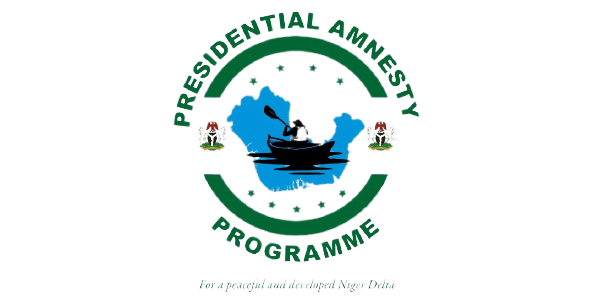Consistent with the cliché that time changes everything, some prevailing circumstances dictate that the Presidential Amnesty Programme (PAP) has become due for restructuring and rebranding, in order to fit into the next level of its expected run, in the nation’s public space. And that has to be sooner than later. Among factors that dictate a rethink of the programme is the looming terminal date of May 29th 2023, for the administration of President Muhamadu Buhari, which is billed to hand over to a new administration that may see things differently. Secondly, is the reality that the PAP was not intended ab initio to last for ever. In fact, as initially envisaged, it was to terminate in 2015 with the life of the Goodluck Jonathan administration. However, given that Goodluck Jonathan was firstly the Vice President to late President Musa Yar Adua who launched the PAP in 2009, it is understandable that the former continued with the programme during his own tenure as President (between 2011 and 2015), in succession to the latter.
However, it was also auspicious that the Buhari administration yielded to prevailing circumstances to sustain the programme when it came into office in 2015 – especially given the unassailable utility of PAP in guaranteeing peace in the Niger Delta region. Nevertheless, while with its imminent exit from office the temptation may be strong for the Buhari administration to jettison PAP, the programme’s utility as a guarantor for peace in the Niger Delta region, seems to dictate the more sustainable option of letting it stay, at least for now.
It was in that context that the recent scare that the federal government was inclined to scrap PAP attracted sharp reactions from stake holders in the Niger Delta with at least two major players in the region’s politics acknowledging the term limit of PAP, even as they also called for effective protocols precede its endgame whenever that becomes due, at least not for now.
One of such is the Movement for the Survival of Izon Ethnic Nationalities (MOSIEND). According to a statement by its President, Ambassador Kennedy West, PAP “is not an endless programme … the federal government should address the reason for the agitation in the first place, which is developing the region and allowing the people to manage as well as control their resources”. The other is the Pan Niger Delta Forum (PANDEF), which sent a letter – ‘Our Concerns on the Future of the Presidential Amnesty Programme’ to the Presidency, that was signed by its National leader Chief Edwin Clark along with 34 others.
Embedded in the foregoing interventions, is the issue of intractability of scrapping PAP for now, which raises the question of what disposition can it be vested with, in order to be handed over to a new administration without turbulence, come May 29th 2023? Put succinctly, there is also the question of what original features of the programme are still relevant or moribund with the passage of time, around which change can be built? For, the truth of the matter for now is that the PAP has to restructure and rebrand in order to establish its relevance as well as sustainability in the immediate future.
This is where the newly appointed Co-ordinator of the programme Barry Ndiomu – a retired Major General of the Nigerian Army has his job cut out for him. As the new helmsman of the outfit, it is his lot to restructure the agency towards disposing it for a seamless buy-in by whichever administration that will take over the reins of governance come May 29th 2023. Unlike his predecessors in that office, his brief goes beyond routine management of the outfit. He has to deliver PAP at one of its most trying periods. And the least which can be said at this stage is that his sterling credentials as one of the finest officers of the country’s military establishment, will come in handy. Barry Ndiomu has a daunting task ahead of him – especially as the job also demands that he fosters a change in attitude by the power brokers and stakeholders in the Niger Delta region. It is their lot to foster a buy-in into whatever reforms that will be implemented in the new look PAP.
PAP was established by the administration of the late President Umaru Yar Adua in 2009 at the peak of restiveness in the oil and gas rich Niger Delta region which featured armed, militant, youth groups disrupting the production and exports of crude oil by the country, with significant threat to the nation’s economy. Specifically PAP was designated to achieve the objectives of de – escalating the fracas in the region, disarming and demobilizing the belligerents, as well as reintegrating them into society as meaningfully productive actors. Put otherwise, it was intended to serve as a palliative for mollifying youth restiveness in the oil rich Niger Delta region. Its utility then was self manifest as it served the purpose by pulling the belligerents off the battle field and to the negotiating table.
In fairness to the past leaders of the programme, PAP has in 13 years run through the administrations of past Presidents Umaru Yar Adua as well as Goodluck Jonathan, and is now gracing the twilight of the Buhari administration. This is not to discount the series of twists and turns in its trajectory – especially with the backdrop of deep seated suspicion of the federal government by the leadership community of the Niger Delta zone. In fact, it is for this reason that even any talk of scrapping PAP at this stage spells imminent crisis which the country can ill-afford.
The way forward now is two-pronged. Firstly is to take stock of the state of affairs in that agency. This step is already underway with the process rationalizing the schedule of beneficiaries serving as a starting point. It needs to be appreciated that the rationalization remains a demographic imperative, as the actual number of who gets what, when and how, has been a gnawing challenge for the programme since inception. Interestingly, Ndiomu has assured that the process will be undertaken with fairness and judiciously.
The second area is as has been mooted earlier, to market a reform agenda across the Niger Delta region towards effecting a buy-in by the stake holders and leadership community in the zone. The flip side of this consideration is that the stakeholders in the region, who are concerned with the fortunes of the programme, need to reciprocate whatever reform gesture from the PAP leadership in order to achieve optimum impact.
And with the early signs coming from PAP since his coming on board as the Co-ordinator of the agency, Major General Barry Ndiomu (rtd), unmistakably has his act intact.

 Join Daily Trust WhatsApp Community For Quick Access To News and Happenings Around You.
Join Daily Trust WhatsApp Community For Quick Access To News and Happenings Around You.


